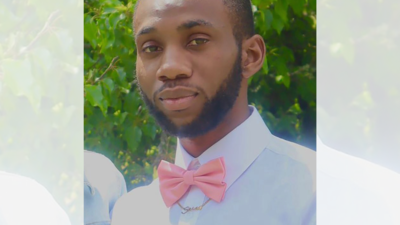Delta State University in Mississippi is facing a wave of grief, outrage, and scrutiny after the body of 21-year-old Demartravion “Trey” Reed, a Black student, was discovered hanging from a tree on campus earlier this week. The incident has sparked heated debate online, with many questioning the official narrative and demanding a deeper investigation into the circumstances surrounding Reed’s death.
A Shocking Discovery on Campus
On the morning of Monday, September 15, campus police were alerted to a tragic scene near the pickleball courts at Delta State University. Trey Reed’s body was found hanging from a tree around 7 a.m., sending shockwaves through the university community and beyond.
Authorities, including Delta State University Police Chief Mike Peeler, quickly responded to the scene. The Bolivar County Coroner’s Office retrieved Reed’s body, and an autopsy was scheduled at the Mississippi State Crime Lab to determine the exact cause of death.
Official Statements: No Foul Play Suspected
In the immediate aftermath, university officials and law enforcement were quick to address the public. Chief Peeler stated that, based on preliminary findings, there was no evidence of foul play. The coroner’s office reported that Reed’s body showed no signs of lacerations, contusions, broken bones, or injuries consistent with an assault.
Bolivar County Deputy Coroner Murray Roark commented, “I don’t think I should probably discuss this any further than that. My opinion is that it was self-done, and I have reasons for that.” The university emphasized that the campus remains safe and that there was no lockdown imposed following the discovery.
Online Outrage and Demands for Answers
Despite these official statements, the incident has ignited a firestorm of speculation and anger online. Many social media users and activists have questioned the suicide theory, pointing to the country’s painful history of racial violence and lynching, especially in the Deep South.
The hashtag #JusticeForTreyReed began trending, with users demanding transparency and a thorough, independent investigation. Some posts referenced unconfirmed rumors of Reed facing racial violence or being “locked up” on campus prior to his death, though authorities have not substantiated these claims.
One widely shared sentiment:
“Black people don’t lynch themselves.” This phrase, echoed across platforms, reflects deep-seated mistrust in official narratives when it comes to Black deaths in suspicious circumstances.
University Response and Community Impact
Delta State University has attempted to reassure students and families, with Chief Peeler stating, “I just want to confirm, this is a safe campus. Delta State University is a beautiful place to be. It’s just unfortunate this loss that comes heavily to our campus.”
However, the tragedy has left many students feeling anxious and unsafe. Some have called for increased mental health resources, while others are demanding the university take a stronger stance against racism and ensure a transparent investigation.
The Broader Context: Racial Tensions and Campus Safety
This incident comes at a time when universities across the United States are grappling with issues of racial equity, campus safety, and mental health. The history of lynching and racial violence in Mississippi casts a long shadow, making any such death particularly fraught and sensitive.
National civil rights organizations have begun to take notice, with some calling for federal oversight of the investigation. The Mississippi Bureau of Investigation and other local agencies are assisting, but activists argue that only a fully independent probe will restore trust.
What Happens Next?
As the autopsy results are awaited, the university community is left searching for answers. Will the official findings quell the outrage, or will they fuel further demands for justice and reform?
For now, Delta State University stands at a crossroads—forced to confront not only the tragic loss of a young life but also the deeper issues of race, trust, and safety that this incident has brought to the surface.
Actionable Takeaways and Future Implications
-
Students and families are urged to seek support from campus counseling services and community organizations during this difficult time.
-
University officials face mounting pressure to ensure transparency and accountability in the investigation.
-
National attention on the case may lead to broader discussions about campus safety, racial justice, and mental health resources at universities across the country.
As the investigation continues, all eyes remain on Delta State University—and on the broader question of how American campuses can become truly safe and inclusive spaces for all students.
Sources
1. Body of Black student found hanging on Delta State University campus
2. Girls and Technology: What Public Libraries Can Do | Emerald Insight
3. Trey Reed's death sparks outrage: 'Black people don't lynch ...
4. NewsOne: News for Black America
5. [PDF] DELTA STATE UNIVERSITY
6. New trend of drugs abused by secondary school students in Nigeria
7. Journal of Consumer Marketing - Emerald Publishing
